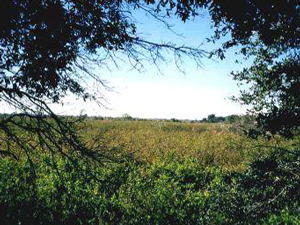ABOUT GREEN HORIZONS

Green Horizon preserves lands for their natural resource value, protection of habitat for plants and animals, and value as open spaces for citizens to enjoy.
Since 1991 Green Horizon has helped to acquire and assisted with placement into conservation over 6,600 acres of natural central Florida.
Our history
The Green Horizon Land Trust was established in 1991 to preserve environmentally valuable or sensitive lands and open space areas in and around the Central Florida Ridge for the benefit of the general public, and to educate the public as to the importance of such lands and their preservation.
Green Horizon Land Trust is a local, nonprofit, 501(C)(3) Florida corporation incorporated in 1991 (see IRS Letter of Determination). The Trust is governed by a Board of Directors consisting of local individuals from such diverse fields as business, law, banking, real estate, land planning and conservation. Meet our Board Members.
Green Horizon uses a variety of creative methods to achieve its land conservation goals and to financially benefit donors. Conservation may be accomplished through outright purchases, bargain sales, donations, conservation easements, limited development agreements or similar techniques. Read more about our strategies
What is a Land Trust?
Land trusts are private, nonprofit, tax exempt organizations that protect environmentally significant land for the public benefit. Land trusts are funded through membership dues and donations from individuals, businesses, and foundations. They can organize private fund raising campaigns to fund land acquisitions which provide direct public benefit.
Land trusts protect land permanently and directly. They accept donations of properties, buy land, or help landowners establish legal restrictions that limit harmful use and development. Some land trusts own and manage nature preserves, recreational areas, or historic sites. Others monitor the development restrictions they have helped establish, but own no land.
Some land trusts work in partnership with government conservation agencies, acquiring land they later transfer to these agencies. Land trusts can acquire land for mitigation land banks; this may involve endangered species issues, the development of regional impact process, comprehensive plans, and other environmental or growth management issues.
Land trusts use a variety of creative methods that achieve conservation goals while meeting specific needs of the community and landowners. Many approaches offer income, estate, or property tax benefits that help make conservation affordable. Read more about our strategies.